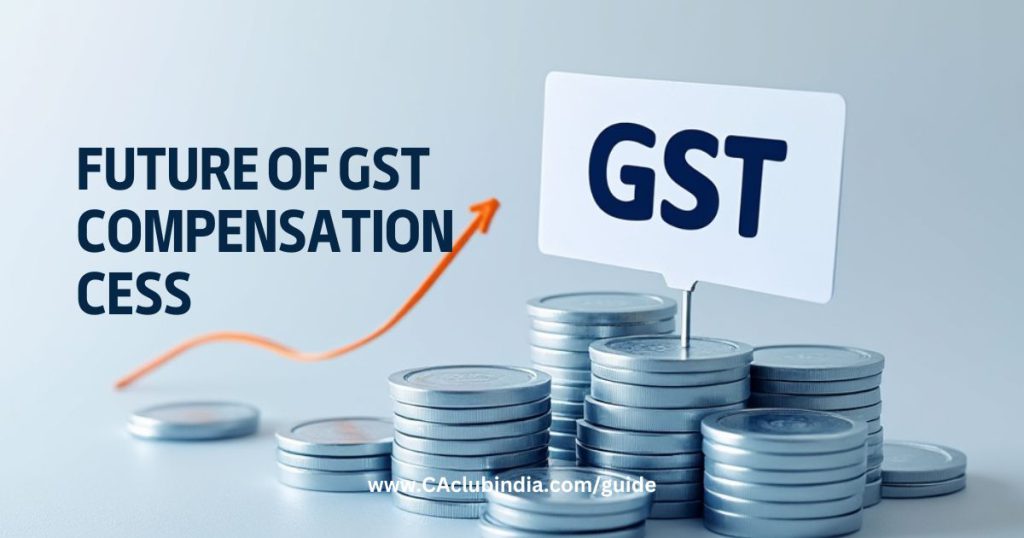Future of GST compensation cess depends on the GST Council’s decision as the main purpose of the cess is to compensate states for revenue losses during the transition to GST.
GST Compensation Cess was introduced in 2017 and acts as a mechanism to compensate the States on account of loss of revenue which may arise due to implementation of the Goods and Services Tax for the first five years.
This cess was introduced to indemnify the revenue losses experienced by manufacturing states such as Gujarat, Karnataka, Haryana, Maharashtra, and Tamil Nadu.
The Compensation Cess is applicable in addition to regular GST.
Such amount collected as cess is deposited into a separate compensation fund established specifically for this purpose which is then distributed to the states based on their revenue loss as mentioned in the GST (Compensation to States) Act, 2017.
The financial year 2015-16 was considered as the base year during the transition period to calculate the compensation amount payable to the States.
Features of GST Compensation Cess
- GST Compensation Cess is levied on certain goods and services such as Pan Masala, Tobacco and Tobacco products, Coal, Briquettes, Aerated water, Motor cars and passenger motor vehicles, SUVs, Caffeinated beverages etc.
- Cess will not be leviable on supplies who have opted for composition levy.
- Supplies that are liable to tax are to be determined based on the valuation provisions as per section 15 (Value of Taxable Supply) of the CGST Act.
- The cess levied under this Act would be payable over and above the CGST, SGST/UTGST and IGST tax leviable on. Cess would be imposed on the whole value exclusive of GST.
- The Central Government reduced the rate of Cess at 65% of the Cess which is otherwise payable on the supply of motor vehicles which are purchased or leased before July 1, 2017 subject to the condition that such supplier has not availed input tax credit of Central Excise Duty or VAT or any other taxes paid thereon w.e.f. 13.10.2017.
Initially, this cess was set to be in place until June 2022 (i.e., for the first five years of GST implementation) but later was extended until March 2026.
Recently, the GST Council issued an Office Memorandum 407/GoMonCompensatonCess/GTSC/2024 dated 25th September 2024, regarding the Constitution of Group of Ministers (GoM) on restructuring the Compensation Cess to make a taxation proposal to replace the compensation cess after its abolition. The GoM is supposed to submit the report by 31st December.
Role of the Group of Ministers (GoM) on restructuring the cess scheme:
- The above-mentioned Memorandum consists of a 10-member GoM chaired by Minister of State for Finance – Pankaj Chaudhary to decide the tax rules on luxury, sin and demerit goods.
- The GoM includes members from various states such as Karnataka, Madhya Pradesh, Assam, Chhattisgarh, Gujarat, Punjab, Tamil Nadu, Uttar Pradesh and West Bengal.
- As per the calculations provided, the principal and interest of the loan would amount to ₹2.69 lakh crore which is to be repaid by January 2026.
- The collections from February and March 2026 from this cess is estimated to be around ₹40,000 crore.
- The additional amount so collected from this cess will be equally divided between the Centre and the States.
Further, the Finance Minister announced in the 54th GST Council Meeting that this Compensation Cess may get extended beyond March 2026 in case the government faces any pressure from the states for compensation and such revenue from GST is insufficient. It may also reduce or remove the cess in case the GST revenue becomes sufficient.
However, it might not be considered under the same name but under a different name.
The Government may introduce another targeted cess or discontinue such introduced cess at a later date that helps generate revenue on specified goods or services.
Future of GST compensation cess is uncertain and contingent on economic, political, and administrative factors. However, the demand from the states will play a pivotal role


